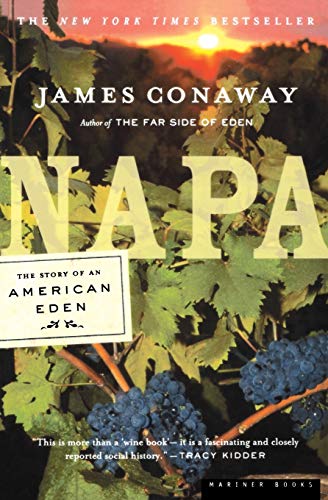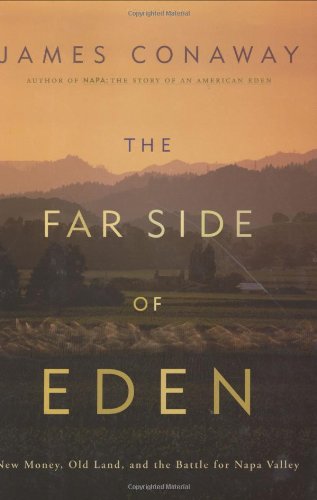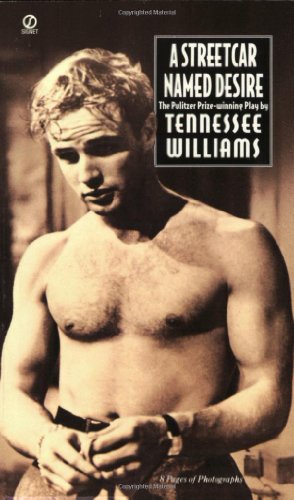Books I read when I lost my job
Discover the transformative books I read after losing my job—powerful reads that inspired resilience, growth, and new beginnings. Explore my curated list now.

Book
The Grapes of Wrath
by John Steinbeck
The Pulitzer Prize-winning epic of the Great Depression, a book that galvanized—and sometimes outraged—millions of readers. One of The Atlantic’s Great American Novels of the Past 100 Years First published in 1939, Steinbeck’s Pulitzer Prize-winning epic of the Great Depression chronicles the Dust Bowl migration of the 1930s and tells the story of one Oklahoma farm family, the Joads—driven from their homestead and forced to travel west to the promised land of California. Out of their trials and their repeated collisions against the hard realities of an America divided into Haves and Have-Nots evolves a drama that is intensely human yet majestic in its scale and moral vision, elemental yet plainspoken, tragic but ultimately stirring in its human dignity. A portrait of the conflict between the powerful and the powerless, of one man’s fierce reaction to injustice, and of one woman’s stoical strength, the novel captures the horrors of the Great Depression and probes into the very nature of equality and justice in America. At once a naturalistic epic, captivity narrative, road novel, and transcendental gospel, Steinbeck’s powerful landmark novel is perhaps the most American of American Classics. This Centennial edition, specially designed to commemorate one hundred years of Steinbeck, features french flaps and deckle-edged pages. For more than sixty-five years, Penguin has been the leading publisher of classic literature in the English-speaking world. With more than 1,500 titles, Penguin Classics represents a global bookshelf of the best works throughout history and across genres and disciplines. Readers trust the series to provide authoritative texts enhanced by introductions and notes by distinguished scholars and contemporary authors, as well as up-to-date translations by award-winning translators.



Book
A Walk in the Woods
by Bill Bryson
NEW YORK TIMES BESTSELLER • The classic chronicle of a “terribly misguided and terribly funny” (The Washington Post) hike of the Appalachian Trail, from the author of A Short History of Nearly Everything and The Body “The best way of escaping into nature.”—The New York Times Back in America after twenty years in Britain, Bill Bryson decided to reacquaint himself with his native country by walking the 2,100-mile Appalachian Trail, which stretches from Georgia to Maine. The AT offers an astonishing landscape of silent forests and sparkling lakes—and to a writer with the comic genius of Bill Bryson, it also provides endless opportunities to witness the majestic silliness of his fellow human beings. For a start there’s the gloriously out-of-shape Stephen Katz, a buddy from Iowa along for the walk. But A Walk in the Woods is more than just a laugh-out-loud hike. Bryson’s acute eye is a wise witness to this beautiful but fragile trail, and as he tells its fascinating history, he makes a moving plea for the conservation of America’s last great wilderness. An adventure, a comedy, and a celebration, A Walk in the Woods is a modern classic of travel literature. NOW A MAJOR MOTION PICTURE

Book
I'm a Stranger Here Myself
by Bill Bryson
A classic from the New York Times bestselling author of A Walk in the Woods and The Body. After living in Britain for two decades, Bill Bryson recently moved back to the United States with his English wife and four children (he had read somewhere that nearly 3 million Americans believed they had been abducted by aliens—as he later put it, "it was clear my people needed me"). They were greeted by a new and improved America that boasts microwave pancakes, twenty-four-hour dental-floss hotlines, and the staunch conviction that ice is not a luxury item. Delivering the brilliant comic musings that are a Bryson hallmark, I'm a Stranger Here Myself recounts his sometimes disconcerting reunion with the land of his birth. The result is a book filled with hysterical scenes of one man's attempt to reacquaint himself with his own country, but it is also an extended if at times bemused love letter to the homeland he has returned to after twenty years away.

Book
Of Mice and Men
by John Steinbeck
A controversial tale of friendship and tragedy during the Great Depression They are an unlikely pair: George is "small and quick and dark of face"; Lennie, a man of tremendous size, has the mind of a young child. Yet they have formed a "family," clinging together in the face of loneliness and alienation. Laborers in California's dusty vegetable fields, they hustle work when they can, living a hand-to-mouth existence. For George and Lennie have a plan: to own an acre of land and a shack they can call their own. When they land jobs on a ranch in the Salinas Valley, the fulfillment of their dream seems to be within their grasp. But even George cannot guard Lennie from the provocations of a flirtatious woman, nor predict the consequences of Lennie's unswerving obedience to the things George taught him. "A thriller, a gripping tale . . . that you will not set down until it is finished. Steinbeck has touched the quick." —The New York Times

Book
The Pearl
by John Steinbeck
“There it lay, the great pearl, perfect as the moon.” Like his father and grandfather before him, Kino is a poor diver, gathering pearls from the gulf beds that once brought great wealth to the Kings of Spain and now provide Kino, Juana, and their infant son with meager subsistence. Then, on a day like any other, Kino emerges from the sea with a pearl as large as a sea gull's egg, as "perfect as the moon." With the pearl comes hope, the promise of comfort and of security.... A story of classic simplicity, based on a Mexican folk tale, The Pearl explores the secrets of man's nature, the darkest depths of evil, and the luminous possibilities of love.

Book
Sideways
by Rex Pickett
Sideways is the story of two friends-Miles and Jack-going away together for the last time to steep themselves in everything that makes it good to be young and single: pinot, putting, and prowling bars. In the week before Jack plans to marry, the pair heads out from Los Angeles to the Santa Ynez wine country. For Jack, the tasting tour is Seven Days to D-Day, his final stretch of freedom. For Miles--who has divorced his wife, is facing an uncertain career and has lost his passion for living-the trip is a weeklong opportunity to evaluate his past, his future and himself. A raucous and surprising novel filled with wonderful details about wine, Sideways is also a thought-provoking and funny book about men, women, and human relationships.

Book
The Fabric of the Cosmos
by Brian Greene
From one of the world's leading physicists comes a grand tour of the universe that makes readers look at space, time, and the texture of reality in a completely different way. 146 illustrations.

Book
The Tie That Binds
by Kent Haruf
From the bestselling author of Eventide, The Tie That Binds is a powerfully eloquent tribute to the arduous demands of rural America, and of the tenacity of the human spirit. Colorado, January 1977. Eighty-year-old Edith Goodnough lies in a hospital bed, IV taped to the back of her hand, police officer at her door. She is charged with murder. The clues: a sack of chicken feed slit with a knife, a milky-eyed dog tied outdoors one cold afternoon. The motives: the brutal business of farming and a family code of ethics as unforgiving as the winter prairie itself. Here, Kent Haruf delivers the sweeping tale of a woman of the American High Plains, as told by her neighbor, Sanders Roscoe. As Roscoe shares what he knows, Edith's tragedies unfold: a childhood of pre-dawn chores, a mother's death, a violence that leaves a father dependent on his children, forever enraged. Here is the story of a woman who sacrifices her happiness in the name of family--and then, in one gesture, reclaims her freedom.


Book
My Name Is Red
by Orhan Pamuk
The Nobel Prize winner and one of today's most prominent contemporary Turkish writers delivers a novel that is a fiendishly devious mystery, a beguiling love story, a brilliant symposium on the power of art, and a “modern classic … rich and essential” (Los Angeles Times Book Review)—set amid the splendor and religious intrigue of sixteenth-century Istanbul. The Sultan has commissioned a cadre of the most acclaimed artists in the land to create a great book celebrating the glories of his realm. Their task: to illuminate the work in the European style. But because figurative art can be deemed an affront to Islam, this commission is a dangerous proposition indeed. The ruling elite therefore mustn’t know the full scope or nature of the project, and panic erupts when one of the chosen miniaturists disappears. The only clue to the mystery—or crime?—lies in the half-finished illuminations themselves. Part fantasy and part philosophical puzzle, My Name is Red is a kaleidoscopic journey to the intersection of art, religion, love, sex and power. Translated from the Turkish by Erda M Göknar

Book
Into Thin Air
by Jon Krakauer
#1 NATIONAL BESTSELLER • The epic account of the storm on the summit of Mt. Everest that claimed five lives and left countless more—including Krakauer's—in guilt-ridden disarray. "A harrowing tale of the perils of high-altitude climbing, a story of bad luck and worse judgment and of heartbreaking heroism." —PEOPLE A bank of clouds was assembling on the not-so-distant horizon, but journalist-mountaineer Jon Krakauer, standing on the summit of Mt. Everest, saw nothing that "suggested that a murderous storm was bearing down." He was wrong. By writing Into Thin Air, Krakauer may have hoped to exorcise some of his own demons and lay to rest some of the painful questions that still surround the event. He takes great pains to provide a balanced picture of the people and events he witnessed and gives due credit to the tireless and dedicated Sherpas. He also avoids blasting easy targets such as Sandy Pittman, the wealthy socialite who brought an espresso maker along on the expedition. Krakauer's highly personal inquiry into the catastrophe provides a great deal of insight into what went wrong. But for Krakauer himself, further interviews and investigations only lead him to the conclusion that his perceived failures were directly responsible for a fellow climber's death. Clearly, Krakauer remains haunted by the disaster, and although he relates a number of incidents in which he acted selflessly and even heroically, he seems unable to view those instances objectively. In the end, despite his evenhanded and even generous assessment of others' actions, he reserves a full measure of vitriol for himself. This updated trade paperback edition of Into Thin Air includes an extensive new postscript that sheds fascinating light on the acrimonious debate that flared between Krakauer and Everest guide Anatoli Boukreev in the wake of the tragedy. "I have no doubt that Boukreev's intentions were good on summit day," writes Krakauer in the postscript, dated August 1999. "What disturbs me, though, was Boukreev's refusal to acknowledge the possibility that he made even a single poor decision. Never did he indicate that perhaps it wasn't the best choice to climb without gas or go down ahead of his clients." As usual, Krakauer supports his points with dogged research and a good dose of humility. But rather than continue the heated discourse that has raged since Into Thin Air's denouncement of guide Boukreev, Krakauer's tone is conciliatory; he points most of his criticism at G. Weston De Walt, who coauthored The Climb, Boukreev's version of events. And in a touching conclusion, Krakauer recounts his last conversation with the late Boukreev, in which the two weathered climbers agreed to disagree about certain points. Krakauer had great hopes to patch things up with Boukreev, but the Russian later died in an avalanche on another Himalayan peak, Annapurna I. In 1999, Krakauer received an Academy Award in Literature from the American Academy of Arts and Letters--a prestigious prize intended "to honor writers of exceptional accomplishment." According to the Academy's citation, "Krakauer combines the tenacity and courage of the finest tradition of investigative journalism with the stylish subtlety and profound insight of the born writer. His account of an ascent of Mount Everest has led to a general reevaluation of climbing and of the commercialization of what was once a romantic, solitary sport; while his account of the life and death of Christopher McCandless, who died of starvation after challenging the Alaskan wilderness, delves even more deeply and disturbingly into the fascination of nature and the devastating effects of its lure on a young and curious mind."


Book
The Catcher in the Rye
by J.D. Salinger
The "brilliant, funny, meaningful novel" (The New Yorker) that established J. D. Salinger as a leading voice in American literature--and that has instilled in millions of readers around the world a lifelong love of books. "If you really want to hear about it, the first thing you'll probably want to know is where I was born, and what my lousy childhood was like, and how my parents were occupied and all before they had me, and all that David Copperfield kind of crap, but I don't feel like going into it, if you want to know the truth." The hero-narrator of The Catcher in the Rye is an ancient child of sixteen, a native New Yorker named Holden Caufield. Through circumstances that tend to preclude adult, secondhand description, he leaves his prep school in Pennsylvania and goes underground in New York City for three days.